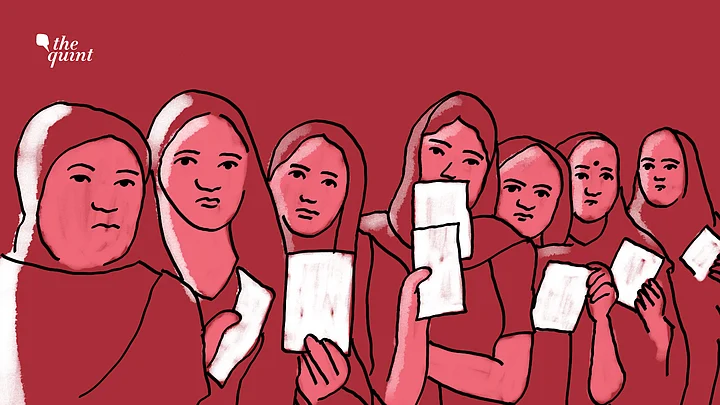The Centre for the Study of Developing Societies and Konrad Adenauer Stiftung conducted a survey across the country to analyse the political life and political behaviour of women in India.
They exhaustively interviewed 6,348 women above 18 years of age from across the country to understand their voting behaviour and political participation in a democracy. The data proves that women are often victims of sexism and patriarchy when it comes to political ambitions and decision making. It also sheds light on how a very small fraction of women consider politics to be a profession of choice.
The analysis was based on the findings of the survey, which assessed the perception of women on different dimensions of political participation and representation.
The report was released on Wednesday by BJP’s Shazia Ilmi, Aam Aadmi Party’s Aatishi Marlena, Congress’ Ragini Nayak, and BJP’s Neha Joshi. The release of the report was followed by a panel discussion on the representation of women in politics.
Percentage of Women Voters and Male Voters Same But Politics is Mainly ‘Male-Dominated’
The study found that women’s participation in elections as voters has seen a sharp increase over the years. In the recent past, there is hardly any gender gap in terms of voting. In many states of India, the percentage of turnout among women is higher than that of men.
Autonomy in deciding who to vote for is also increasingly visible. Urban women, those with access to higher education and those who were married, reported lesser impact of family influence in deciding whom to vote for.
The study has also found that though the number of women as candidates at elections across different levels has registered an increase, although, there still exists a wide gap between the percentage of men and women as candidates in elections.
The Women’s Reservation Bill has not as yet been passed in spite of the major political parties making a commitment to the same.
The survey also argues that political parties have only made vague commitments to enhance women’s representation in elected bodies but have done precious little to nominate a larger number of women candidates when finalising their nominees.
The report has clearly shown that the representation of women in politics is limited and politics remains mostly a male-dominated bastion.
Socio-Economic Class and Politics
The survey found that a woman’s socio-economic class also determines her participation in electoral activities. Women belonging to the upper social (castes) and upper economic classes were found to be more active in electoral politics as compared to women placed at the bottom of the social and economic hierarchy.
Parties Prefer Male Candidates
Forty-four percent of women agreed upon the fact that there was blatant sexism in politics. When the survey posed a situation wherein a man and a woman were equally good candidates, but the ticket was to be given to only one candidate, nearly half the women believed that political parties would prefer to give it to the male candidate.
Over 60% of Women Do Not Want to Pursue a Career in Politics
Only a little over one-fourth of the women respondents were keen to make a career in politics if given an opportunity.
The study also found increased participation of women in election-related activities in recent times. The study indicated that while there was evidence of an increase in participation in election-related activities it was still severely limited.
(At The Quint, we question everything. Play an active role in shaping our journalism by becoming a member today.)
